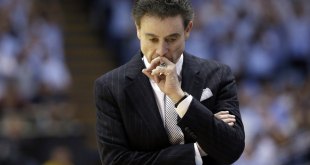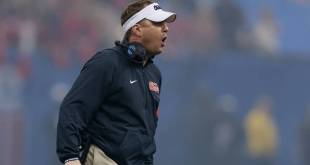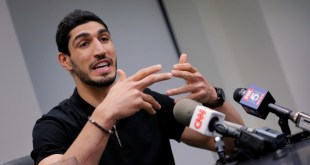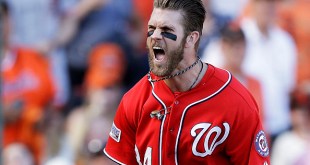The baseball season may have just officially ended, with the San Francisco Giants once again popping champagne, but it’s already been an eventful offseason for the Chicago Cubs. First, the Cubs broke ground on the long-awaited expansion and restoration of historic Wrigley Field, titled The 1060 Project. Next, the team went to work improving the product on the field, pulling off an unexpected coup by signing well-regarded manager Joe Maddon. Now, the most recent development to unfold at the Friendly Confines involves a lawsuit against a certain pants-less mascot.
You can’t make this stuff up.
LAWSUIT
On July 18, the Cubs filed suit against a group of people they claim to have been dressing in a bogus mascot costume and participating in “inappropriate and unsavory actions” near Wrigley Field, including charging fans for pictures and instigating bar fights. The suit, filed in the United States District Court for the Northern District of Illinois, alleged John Paul Weier, Patrick Weier and three unnamed individuals have been dressing as a character named “Billy Cub” in the Wrigleyville area and presenting the character as a representative of the team, without the permission of the Cubs. The Billy Cub character is a bear wearing a Cubs baseball cap and a gray jersey with the word “Chicago” stitched across the front and the name “Billy Cub” and number 78 on the back. The costumed bear walked the area around Wrigley Field trying to have photos taken with fans and carrying a cooler marked “Tips.”
The lawsuit against the Weiers alleged seven counts, claiming, among other things, trademark infringement; trademark dilution; injury to the Cubs’ reputation; and unfair competition. In addition to monetary damages, the suit also asked the court for injunctive relief, namely ordering the Weiers to stop using the Billy Cub character and to “deliver for destruction” all merchandise, advertisements, packaging, costumes or other materials related to the character.
MOTIVATION
So what prompted the Cubs to finally take action against the “entrepreneurs” behind the character, some seven years after Billy Cub took to the Wrigleyville streets? The answer is likely twofold.
The Chicago baseball franchise, which played its first games in 1876 as the Chicago White Stockings, officially became the Cubs in 1907 and are the oldest currently active American professional sports club, continuously existing in the same city for their entire history. In the previous 106 years, however, the Cubs never took an official physical mascot. In 2014, that all changed, as the team adopted a young bear cub character, named “Clark the Cub” for Wrigley Field’s famous residence at the corner of Clark Street and Addison Street. As you can see from the picture, Clark is an oversized bear character, wearing a backwards Cubs cap and a home Cubs jersey, with the number one and the name “Clark” on the back.
Last year, in preparation for the January announcement of the Clark mascot, the Cubs sent John Paul Weier a 100-plus page letter, ordering him to stop wearing the Billy Cub outfit and citing allegations of trademark infringement for engaging in “unabated Mascot Activities.” Weier and the other men dressed as Billy Cub did not stop their mascot activities and continued to be a staple at Cubs games. An incident this spring, however, likely escalated the Cubs rush to action, as Patrick Weier - while donning the Billy Cub outfit - punched a man who had removed the head of Weier’s costume at a bar near Wrigley Field. Video footage of the incident recorded by an onlooker went viral on the Internet that evening, and according to the Cubs lawsuit, Billy Cub was misidentified as an official Cubs mascot in some of the coverage.
TRADEMARK LAW AND RESOLUTION
In a federal court ruling dated September 29, the Cubs and the Weiers reached a settlement of their dispute, as the court entered an “Agreed Permanent Injunction.” Pursuant to the court’s ruling, the Weiers will “immediately and forever cease and desist all activities relating to the [Billy Cub character]” and “shall prohibit all third parties under their control from using the [Billy Cub] costumes.” The ruling also states that the Weiers are prohibited from creating another character costume and using it in any way that might cause a likelihood of confusion with any of the Cubs trademarks or create the misimpression that they’re affiliated with or endorsed by the Cubs.
The key word in the ruling is that it was “agreed.” The Weiers likely knew they were fighting a losing battle. Trademark infringement is the unauthorized use of a trademark or service mark (or a substantially similar mark) on competing or related goods and services. The success of a lawsuit alleging infringement turns on whether the defendant’s use causes a likelihood of confusion among consumers. If a significant number of people are likely to believe that the Billy Cub character was in some way affiliated or endorsed by the Cubs, then there would be a likelihood of confusion with the Cubs’ trademarks. [i] In such a case, the Cubs would not only be entitled to an injunction, in which it could legally prevent the Weiers from using the Billy Cub costume, but the club would also likely be entitled to a wide array of potential monetary damages.
Further, the Cubs had a strong argument for “tarnishment.” Under the Federal Trademark Dilution Act,[ii] trademark dilution is “the lessening of the capacity of a famous mark to identify and distinguish goods or services, regardless of the presence or absence of (1) competition between the owner of the famous mark and other parties, or (2) likelihood of confusion, mistake, or deception.” Thus, federal dilution law protects the identifying or distinguishing power of a trademark. Tarnishment is a flavor of dilution. A trademark is tarnished when an infringing mark portrays the infringed mark in a negative light - usually in the context of sex, drugs, crime, etc.[iii] The thought is that a tarnishing use of a mark threatens to destroy the commercial value of the mark because the infringer’s use reduces the trademark’s reputation as a wholesome identifier of the owner’s products or services.[iv] Further, in the case of tarnishment, if the famous mark’s owner can prove the infringer “willfully intended to trade on the owner’s reputation or to cause dilution of the famous mark,” the court has discretion to award the owner attorneys’ fees and defendant’s profits as well as actual damages. Even where no one could possible think that the Billy Cub character was sponsored by the Cubs (i.e. there’s no likelihood of confusion issue), the alleged actions of harassing fans for tips and getting into bar fights casted a negative light over the Cubs’ trademarks, particularly where the Billy Cub character was misidentified as the Cub’s official mascot, Clark.
With a relatively weak case, the Weiers likely made the correct decision to settle the matter, agreeing to voluntarily abandon the Billy Cub character, rather than have a court eventually order so and tack on monetary damages to boot. Said Cubs spokesman Julian Green, “We are happy to have this issue resolved so fans have a clear understanding of who our team mascot is when they are visiting or attending a game at Wrigley Field.”[v] Thus, an entertaining dispute between two fuzzy mascots comes to a quiet resolution, and fans outside Wrigley Field won’t be seeing anyone in a bear suit panhandling for tips anymore. Because, in Chicago, there can be only one.
[i] There is no defined amount or percentage of people who must be confused for there to still be a likelihood of confusion. In deciding whether consumers are likely to be confused, the courts will look to a number of factors, including: (1) the strength of the mark; (2) the proximity of the goods; (3) the similarity of the marks; (4) evidence of actual confusion; (5) the similarity of marketing channels used; (6) the degree of caution exercised by the typical purchaser; and (7) the defendant’s intent. Polaroid Corp. v. Polarad Elect. Corp., 287 F.2d 492 (2d Cir. 1961).
[ii] 15 USC 15 §1125
[iii] In the sports realm, a good example of how tarnishment works is the “Debbie Does Dallas” case, in which a pornographic depiction of a Dallas Cowboys Cheerleader-style cheerleader in an adult film tarnished the professional mark of the Dallas Cowboys. See, Dallas Cowboys Cheerleaders, Inc. v. Pussycat Cinema, Ltd., 467 F. Supp. 366, 377 (S.D.N.Y. 1979).
[iv] Tarnishment can also occur if the infringer is offering low quality goods, with the theory that the tarnishing use threatens to destroy the commercial value because people will associate the lack of quality of the infringer’s goods with the plaintiff’s unrelated goods.
[v] http://www.bleedcubbieblue.com/2014/10/29/7097821/cubs-billy-cub-federal-court-settlement
 The Sports Esquires Putting Sports on Trial
The Sports Esquires Putting Sports on Trial




